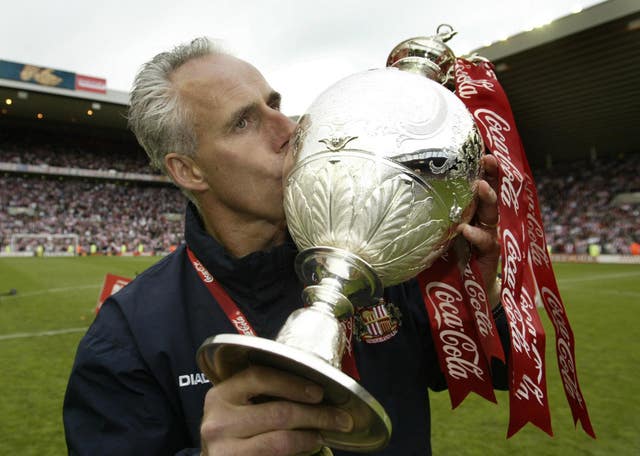Mick McCarthy was appointed manager of Premier League strugglers Sunderland on this day in 2003.
It was McCarthy's third job in management after Millwall and the Republic of Ireland, where he was in the hotseat for close to seven years, resigning in November 2002.
At the Stadium of Light, McCarthy succeeded Howard Wilkinson, who was sacked after six consecutive defeats left the club in a desperate position at the bottom of the table.

The then 44-year-old said: "It's a battle I'm looking forward to. If I didn't think there was any chance, I'd be daft – mathematically, it's still possible.
"I've had a few texts that have suggested that I'm sailing a bit close to the wind on this challenge, but I think it's still doable and, whatever it is, I've got to believe that we can do it."
McCarthy became Sunderland's third manager of the season, with Peter Reid's seven-and-a-half-year reign ending in October 2002, followed by Wilkinson's disastrous brief tenure.
Sunderland chairman Bob Murray said the appointment was made "for the long term to halt the decline and revive the club's fortunes", and McCarthy ended up staying at the helm for three years despite a terrible start.
2 – Only Steve Bruce (4) and Neil Warnock (3) have won more promotions to the Premier League as a manager than Mick McCarthy (2 – with Sunderland in 2004/05 and Wolves in 2008/09). Return. https://t.co/2MPBDcReGV pic.twitter.com/ub3UyG90cN — OptaJoe (@OptaJoe) January 22, 2021
Sunderland lost all of their nine remaining games, scoring just two goals, and their tally of 19 points across the season is the fifth worst in Premier League history.
It took McCarthy two attempts to guide the club back, with Sunderland finishing third in Division One the following season before winning the first edition of the Championship in 2004-05.
Life back in the top flight was no easier, though, and McCarthy was dismissed on March 6, 2006, with Sunderland again doomed to relegation – they eventually went down with only 15 points.
McCarthy has since managed Wolves, Ipswich, the Republic for a second time and Cypriot side APOEL Nicosia and he signed a two-year deal with Cardiff last week after initially taking over on a short-term basis in January.







